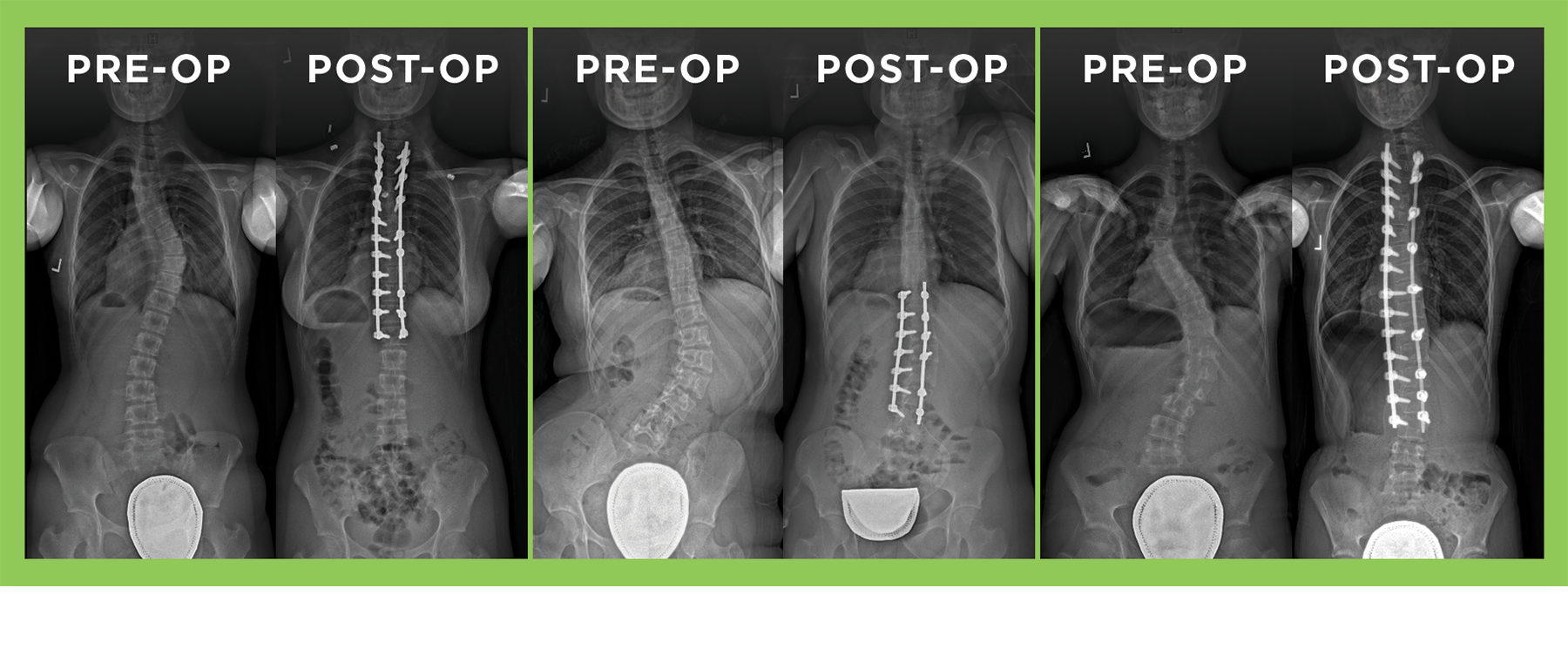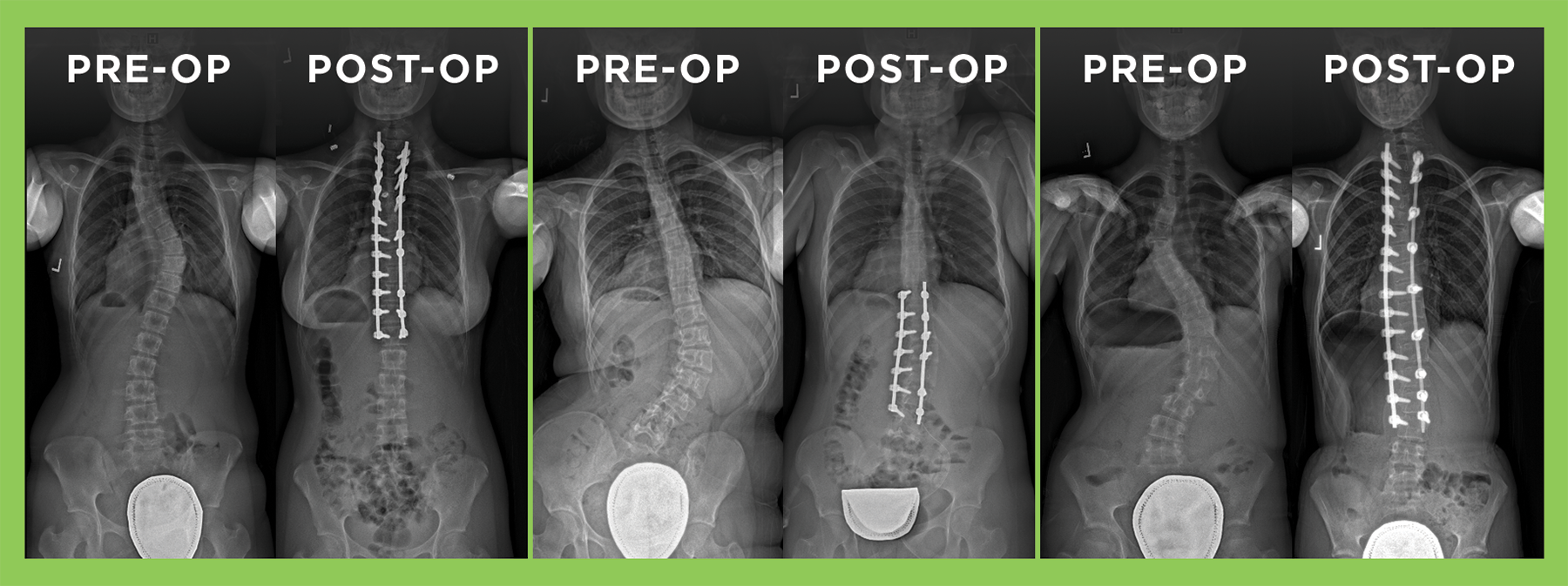Spine and Scoliosis Spinal Fusion and Instrumentation
A spinal fusion and instrumentation is recommended in several situations. This includes adolescent scoliosis where the curve has progressed to greater than 50 degrees. The underlying cause could be idiopathic, congenital or neuromuscular. A spinal fusion and instrumentation is also recommended for patients with spondylolisthesis or spondylolysis that has failed conservative measures. A spinal fusion and instrumentation is also sometimes recommended in the young child who has a congenital scoliosis that is progressive. The vertebra that is not formed correctly is removed (hemivertebrectomy) and a short spinal fusion and instrumentation is done.
Scoliosis surgery in adolescents/adults consists of spinal fusion, in which the vertebrae are fused together with bone grafts and instrumentation. The instrumentation consists of metal rods that are attached to the spine to maintain curve correction. Most spinal fusions are performed through a posterior approach, in which the operation is performed with an incision in the back. The alternative is an anterior approach which is done in some situations.
Here at NewYork-Presbyterian Morgan Stanley Children’s Hospital we strive to make this surgery as safe as possible by minimizing the risks. As a major center for the treatment of children with spine issues, we benefit from a wide range of experience treating all types of children with scoliosis. This experience has allowed us to develop protocols and checklists that help us to deliver the safest and best experience to you and your child. In fact, we have led the development of best practice guidelines in this area and are heavily involved in clinical research and national governance in the area of pediatric spine care.
Because of the stability and effectiveness of the devices used in these spine operations today, patients are usually able to walk the day following their surgery, and hospital stays are generally about 3-5 days. The majority of adolescents returns to school within 4 weeks and can often return to full athletic activity within 6 months.
Below you will find our Scoliosis PreOp Book that helps the patient and parents prepare themselves for surgery. It answers many questions that lead up to the surgery as well as after the surgery. You will also find some links to the NewYork-Presbyterian Morgan Stanley Children’s Hospital website where there are two guides that help to prepare you for your hospital stay as well as “What to Expect” videos.
Resources
- Book: What to Expect: Your Child's Spine Surgery
- Book: What to Expect: Neuromuscular Scoliosis Surgical Intervention
- Before & After Examples of Commonly Performed Scoliosis Surgeries
- App: Scoliosis Tracker for iPhone and iPad
- Book: Scoliosis: A Guide for Parents and Families
- Book: Safety in Spine Surgery
- NewYork Presbyterian Hospital Patient and Visitor Guide: Preparing for Your Child’s Stay: http://nyp.org/pdf/morganpreparing_english_web.pdf
- NewYork Presbyterian Hospital Patient and Visitor Guide: During Your Child’s Stay: http://nyp.org/pdf/morgan_during_english_web.pdf
- NewYork Presbyterian Hospital Patient and Visitor Guide (Spanish): http://childrensnyp.org/mschony/patients/guia-pacientes.html
- NewYork Presbyterian Patient and Visitor Guides: http://childrensnyp.org/mschony/patients/patient-guide.html
- PreSurgical Tour: http://www.childrensnyp.org/flash/flash_surg.html
- A Child’s Surgery: What to Expect Videos: http://childrensnyp.org/mschony/patients/what-to-expect.html
- Using Power to Make Pedicle Screw Insertion Safer
- Primary Multilevel Wound Closure in Scoliosis
- Tips and Tricks for Derotating the Spine in AIS
Additional Resources
Watch the video, below:
Pediatric Orthopaedic Spine Surgery Pre-Op Class







